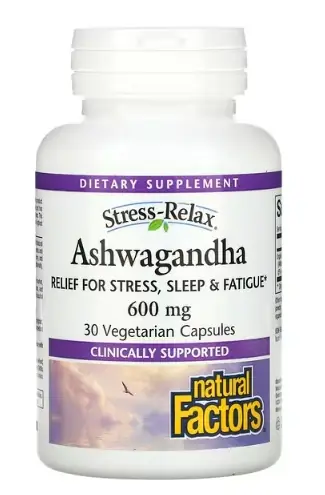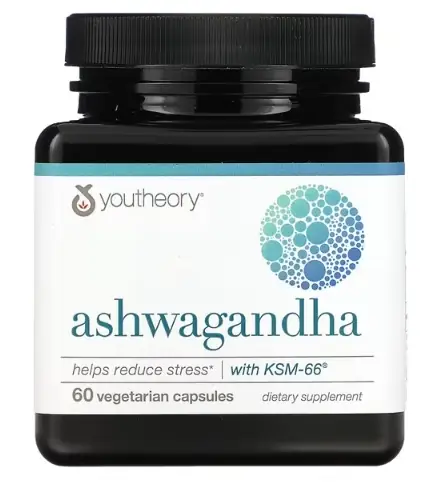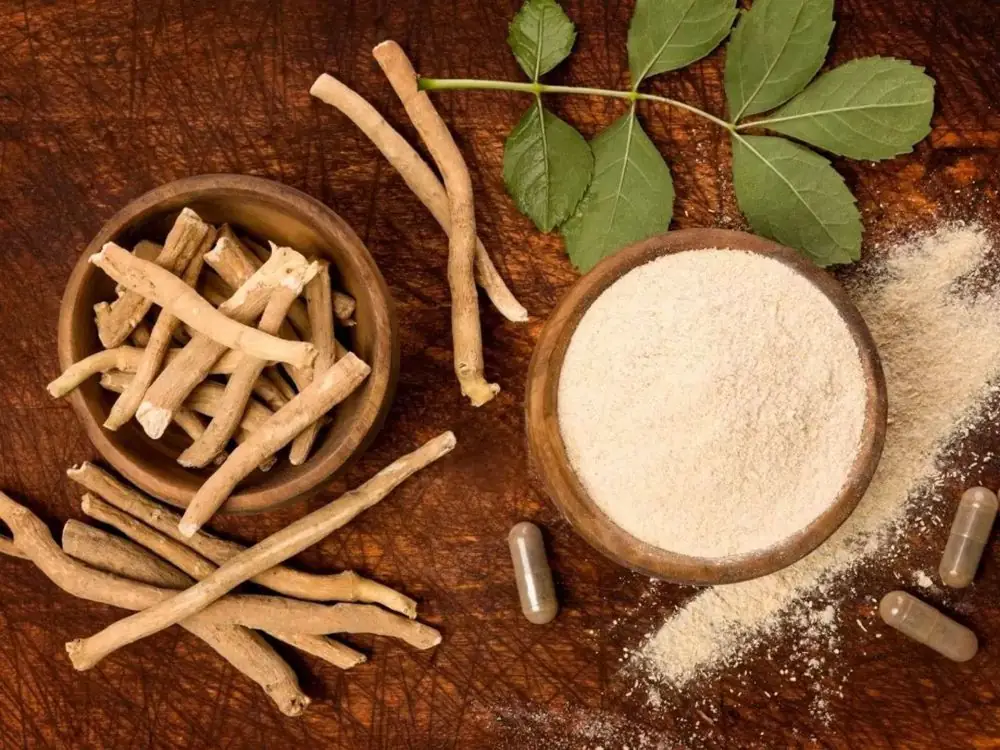Is Ashwagandha Good for Sleep and Anxiety: A Review

An evergreen shrub that comes from India, ashwagandha is often said to soothe nerves and improve sleep. Is Ashwagandha truly good for sleep and anxiety? Can this herb alleviate the symptoms of various health conditions? Can it be used to slow down the development of Parkinson’s disease?
Let’s find out what modern evidence-based medicine thinks of this traditional remedy.
Benefits of Ashwagandha for Sleep

Ashwagandha, also known as Withania somnifera, is very likely to improve the quality of your sleep, although you need to take it for eight weeks or more to see results.
A recent 2021 review of five studies that involved 400 people makes a conclusion that ashwagandha improves sleep in adults. Most often, doses of 600 mg of root extract per day were used. The longer the participants used this plant, the better sleep quality they enjoyed. What’s more, ashwagandha also increased their total sleep time.
A 2020 placebo-controlled study conducted on 50 elderly participants produced similar results. People who used ashwagandha root extract achieved noticeable improvements in both sleep quality and mental alertness. There were no significant side-effects: this ayurvedic remedy was well tolerated.
Scientists believe that ashwagandha contains triethylene glycol, a bioactive compound that makes falling asleep easier. Very recent studies show that ashwagandha influences GABA/histamine receptors in the brain: this promotes relaxation and improves sleep.
To sum up, if you have trouble falling asleep or wake up many times during the night, ashwagandha may be a good choice to improve sleep quality. Make sure that you use at least 600 mg of root extract daily as a lower dosage might not produce the desired effect. The longer you use this remedy, the better results it produces. This means that you should not get discouraged if there seem to be no results in the first month of use.
Effects of Ashwagandha on Anxiety

There are numerous studies that prove that ashwagandha can reduce anxiety. When it comes to adaptogens (substances that help you handle stress), this plant is really in a league of its own.
In an older 2000 study, it was found that the anti-anxiety action of ashwagandha can be compared to lorazepam, a well-known antidepressant medication. In a 2019 study participants used ashwagandha extract in doses that ranged between 250 and 600 mg per day. Both the subjective evaluation of stress and levels of the stress-related hormone cortisol in the blood were markedly reduced.
In another 2019 study participants were given 240 mg of ashwagandha extract per day for two months. Their stress levels were significantly lower when compared to the control group.
A 2021 review of several studies admit that ashwagandha root and leaf extracts have noticeable anti-anxiety activity and can alleviate symptoms of depression and insomnia. Still, there is no scientific consensus about what doses work best and what are the potential interactions of this remedy with other medications.
While additional research is needed, using ashwagandha can be a good way to reduce stress and anxiety. Still, you might not see positive results in the first month of use. This remedy needs time to reach its full potential.
Is Ashwagandha Good for ADHD and Mental Health Conditions?
There are not many high-quality studies concerning the benefits of ashwagandha for attention-deficit hyperactivity disorder. Still, in a 2022 study, 400 mg of root and leaf extract daily improved short-term memory and ability to concentrate in young adults. In a 2017 study people who received plant extracts (600 mg daily) demonstrated better memory and improved attention.
People who suffer from schizophrenia may also benefit from using ashwagandha. In a 2019 study patients used 1.000 mg of plant extract for 12 weeks. The symptoms of anxiety and depression subsided considerably.
In another 2018 study patients who experienced worsening symptoms of schizophrenia were given ashwagandha extract (1.000 mg) in addition to their usual antipsychotic medication. These patients experienced greater improvements in symptoms compared to the control group.
Patients with bipolar disorder might also reduce their symptoms using ashwagandha. A small-scale 2013 study observed improvements in patients with bipolar disorder who used 500 mg of plant extract for 8 weeks.
What’s more, ashwagandha can also greatly improve symptoms of depression. In a 2012 study people with depression who used 600 mg of plant extract daily for 60 days experienced a 77% reduction in symptoms.
Lastly, there is a 2011 review of several animal studies that shows that ashwagandha can slow down the loss of brain function caused by Parkinson’s disease and Alzheimer’s disease. Still, additional research on humans is required.
Summing up, ashwagandha improves memory and boosts attention in both healthy people and patients who suffer from various mental health conditions. It also helps reduce the intensity of such symptoms as anxiety and depression.
Then again, people who suffer from mental health conditions need to have a consultation with an experienced health practitioner to get an effective therapy plan.
Ashwagandha Supplements for Sleep Aid, Stress and Anxiety
It is always a good choice to take supplements in doses that were used in scientific studies. Dosages of 600 mg and 1.000 mg appear to be used most often. For this reasons, you might want to use supplements that feature exactly the same doses.
This high-quality supplement offers 600 mg of root extract:
Ashwagandha by Natural Factors

- 30 capsules
- Organic
- Vegan
If you want to use 1.000 mg of plant extract per day, choose this supplement that comes from a reliable brand:

- 60 capsules
- 500 mg of plant extract per capsule
- Ginger root provides better bioavailability
- Organic
Potential Side Effects of Ashwagandha

This natural remedy is considered safe. Side effects of ashwagandha are usually mild and include:
- drowsiness
- diarrhea
- gastrointestinal discomfort.
Avoid using this supplement without prior consultation with an experienced health practitioner if you have thyroid disease. Pregnant women should avoid taking ashwagandha as high doses of this supplement can lead to pregnancy loss.
To find out more about ashwagandha, read our comprehensive guide. There is good scientific evidence that this ayurvedic remedy can also boost both male and female sex drive and improve fertility.
Now you know the answer to the question: Is Ashwagandha good for sleep and anxiety? Even though this natural remedy is believed to be safe and effective, if your symptoms persist, you need to consult with an experienced health practitioner.